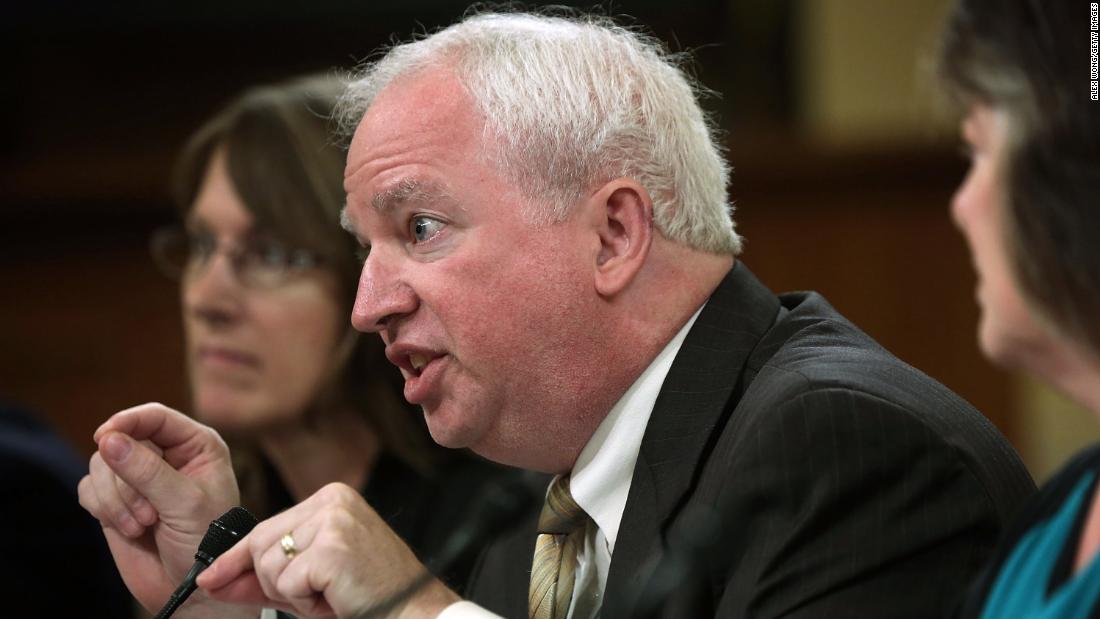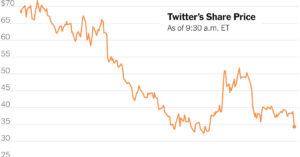The revelations provide new insight into Eastman’s role as a central figure in the effort led by former President Donald Trump to overturn the results of the 2020 presidential election.
The hearing focused on the intense pressure campaign that Trump directed at then-Vice President Mike Pence in an effort to compel Pence to help carry out a plan to overturn the election results.
The committee walked through how Eastman put forward a legal theory that Pence could unilaterally block certification of the election — a theory that was roundly rejected by Trump’s White House attorneys and Pence’s team, but was nevertheless embraced by the former President.
Willing to tolerate violence to overturn election
Former Trump White House attorney Eric Herschmann told the commitee that Eastman indicated to him he was willing to accept violence in order to overturn the 2020 election.
The committee played video from Herschmann’s deposition where he described a conversation with Eastman about his claims that Pence could overturn the election in Congress.
“I said, ‘Are you out of your effing mind?'” Herschmann said. “That was pretty blunt. I said, ‘You’re completely crazy.’ I said, ‘You’re going to turn around and tell 78-plus million people in this country that your theory is this is how you’re going to invalidate their votes. Because you think the election was stolen?'”
Herschmann said he told Eastman: “They’re not going to tolerate that. You’re going to cause riots in the streets.”
“And he said words to the effect of, ‘There’s been violence in the history of our country in order to protect the democracy, or to protect the republic,'” Herschmann said.
Continued to push for delay in certifying election after the riot
Eastman continued to push for ways to delay certifying the 2020 election even after rioters were cleared from the Capitol on January 6, 2021, former Pence counsel Greg Jacob testified.
Jacob, who appeared before the committee to give testimony on Thursday, was asked during the hearing if he heard anything further from Eastman after the riot had been put down.
“So now that the precedent has been set that the Electoral Count Act is not quite so sacrosanct as was previously claimed, I implore you to consider one more relatively minor violation and adjourn for 10 days to allow the legislatures to finish their investigations,” Eastman wrote in the email presented during the hearing by the committee.
Jacob, who had clashed with Eastman over his scheme, said that he eventually shared Eastman’s proposal with Pence a day or two later.
Pence responded that Eastman’s idea was “rubber-room stuff,” according to Jacob.
Asked to explain what that meant, Jacob said: “I understood it to mean that after having seen play out what happens when you convince people that there is a decision to be made in the Capitol legitimately about who is to be the President and the consequences of that, that he was still pushing us to do what he had been asking us to do for the previous two days — that that was certifiably crazy.”
Acknowledged legal theory would fail before the Supreme Court
The committee made the case on Thursday that Eastman knew his plan to try to block the election would fail if it went to the Supreme Court — yet the right-wing attorney continued to fuel Trump’s hope.
According to Jacob’s testimony, Eastman first tried to argue the Supreme Court would land at 7-2 in their vote, if it came to them, but then conceded that his legal theory would lose 9-0.
At one point during the hearing, Jacob was asked during the hearing if Eastman ever told him what he thought the Supreme Court would do if it had to decide the issue.
Jacob responded, “Yes, we had an extended discussion, an hour and a half to two hours, on January 5, and when I pressed him on the point, I said John, if the Vice President did what you are asking him to do, we would lose 9 to nothing in the Supreme Court, wouldn’t we? And he initially started, ‘Well, I think maybe you would only lose 7-2’, and after some further discussion, acknowledged, ‘Well yeah, you’re right, we would lose 9, nothing .'”
Jacob later said that Eastman tried to argue that the courts would not get involved in the dispute. “And so if the courts stay out of it, that will mean that we’ll have the 10 days for the states to weigh in and resolve it,” he said Eastman told him. “And then they’ll send back the Trump slates of electors and the people will be able to accept that.”
Jacob said he responded that such a scenario would have created “an unprecedented constitutional jump-ball situation with that standoff. As I expressed to him, that issue might well have to be decided in the streets.”
Wanted a pardon
The committee said Eastman made the request to Giuliani, Trump’s former attorney, in an email that is in their possession.
“I’ve decided that I should be on the pardon list, if that is still in the works,” the email from Eastman to Giuliani reads.
Eastman did not ultimately receive a pardon and refused to answer the committee’s questions about his role in efforts to overturn the 2020 election, pleading the Fifth during his deposition.
CNN’s Katelyn Polantz and Zach Cohen contributed to this report.


